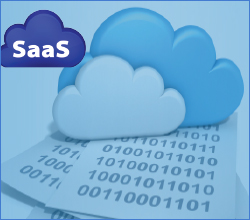
Country of Origin Marking for Imports/Exports
 Jan Seal
Jan Seal
 90 Min
90 Min
Product Id: 704785
This training program will focus on regulations that apply to most goods imported into the United States and illustrate them with examples. In addition, attendees will learn more about country of origin marking for exports from the United States to other countries.

Documentary Letter of Credit Terms and Conditions
 John Dunlop
John Dunlop
 60 Min
60 Min
Product Id: 702216
The objective of this 60 minute webinar is to help exporters and importers understand Letter of Credit terms and conditions that go into structuring a transaction for successful payment and receipt of goods. Attendees will learn how to use Letters of Credit to assure payment for exports, how to apply for a Letter of Credit and what terms and conditions should be used for successful transactions.

How to prepare for a CBP Audit
 Raymond Sullivan
Raymond Sullivan
 60 Min
60 Min
Product Id: 705352
This CBP audit preparation training program will help attendees move toward a systematic approach for both general compliance and when notified about a CBP audit. It will help identify the likelihood of being subject to CBP audits, and help spot potential vulnerabilities and test your compliance (potential vulnerability, self review and general audit issues).

Title 19 CFR 171 - U.S Customs Prior Disclosure: Mitigate Risks and Avoid Penalties
 Raymond Sullivan
Raymond Sullivan
 90 Min
90 Min
Product Id: 704691
This training program will analyze Title 19 CFR 171 - U.S Customs Prior Disclosure. It will objectively evaluate customs errors and mistakes and define the pros and cons of disclosing to customs. The program will further demonstrate the consequences of disclosure or non-disclosure and remedial measures.

Customs Entry Reconciliation Program - Valuation Errors and Penalties
 Raymond Sullivan
Raymond Sullivan
 60 Min
60 Min
Product Id: 704815
This webinar will explain how to calculate the correct valuation on a product while importing from related party suppliers. Instructor will discuss how to document transactions for CBP process and to recognize valuation issues that may cause price adjustments after import. Participants will learn to avoid adverse consequences of declared valuation errors and what are the downsides to participation in reconciliation.

Export Documentation and Procedure
 Iliyana Hristev
Iliyana Hristev
 90 Min
90 Min
Product Id: 704537
This webinar training will discuss the export documentation and procedures. The instructor will discuss the differences in documentation requirements between exporting and domestic business , how to create important documentation including commercial invoice, shipper's letter of instruction, customs and consular invoices, product specification documentation and certificates of origin

Exporting to Mexico Webinar Series 4: Harmonized System Code Basics and Special Certificates
 Linda B Sarabia
Linda B Sarabia
 90 Min
90 Min
Product Id: 704223
This last training program in the exclusive 4-part series will examine the origin of the Harmonized System code, the general rules applicable and the Harmonized System coding at an international level and at a national level.

Pricing, Quoting, and Terms of Sale for Export Markets: Incoterms
 Iliyana Hristev
Iliyana Hristev
 90 Min
90 Min
Product Id: 704491
This training program will examine why establishing an appropriate price is one of the most crucial parts of the export marketing mix, as it is the one that generates revenue. The costs of the product itself, its promotion and its distribution all need to be included into the final price in order to make a profit. The export price can vary depending on the particular product, the type of buyer, the initial and long term value, the destination and the channel of distribution.

Export Party Responsibilities - USPPI, FPPI, Forwarder, Carrier, Routed Transactions
 Suzanne Bullitt
Suzanne Bullitt
 60 Min
60 Min
Product Id: 704138
This training program will discuss why an effective export control program (ECP) consists of many processes that connect, intersect, and overlap. It is vital that employees responsible for export compliance know the requirements of Title 15, CFR, Part 30, and the responsibilities of U.S. parties at the time of export. This online training will provide compliance materials that examine U.S. Customs and Border Protection regulations for the international logistic arena.

Export Party Responsibilities - USPPI, FPPI, Forwarder, Carrier, Routed Transactions
 Suzanne Bullitt
Suzanne Bullitt
 60 Min
60 Min
Product Id: 705225
This training program will discuss why an effective export control program (ECP) consists of many processes that connect, intersect, and overlap. It is vital that employees responsible for export compliance know the requirements of Title 15, CFR, Part 30, and the responsibilities of U.S. parties at the time of export. This online training will provide compliance materials that examine U.S. Customs and Border Protection regulations for the international logistic arena.

Sales and Use Tax - Avoiding Double Tax on Drop Shipments
 Miles Hutchinson
Miles Hutchinson
 100 Min
100 Min
Product Id: 703616
This webinar will discuss the principles of drop shipment exemption. It will also detail how you can help your company legally avoid tax assessments by your drop shippers on your resale orders.

Is your Export Control Program Up to Standard? A How-to on Conducting a thorough Self-Assessment
 Suzanne Bullitt
Suzanne Bullitt
 60 Min
60 Min
Product Id: 703205
This training on Export Administration Regulations (EAR) compliance will provide the attendees best practices for developing an export control program for conducting a thorough self assessment.

ECCN & CCL - Classification, Exceptions, Documentation, License Requirements & More
 Suzanne Bullitt
Suzanne Bullitt
 60 Min
60 Min
Product Id: 704054
This webcast will provide an overview of U.S. Export Classification Control Numbers (ECCN) and making license determinations via the Commerce Control List (CCL).It will explain the “How to” classification breakdown and the considerations for commodity jurisdictions (CJs).

Exporting to Mexico Webinar Series 3: INCOTERMS Review and INCOTERM Common Practices in Mexico
 Linda B Sarabia
Linda B Sarabia
 60 Min
60 Min
Product Id: 704222
This third training program on exporting to Mexico will elucidate what are INCOTERMS, buyer and seller obligations, the global logistics process, INCOTERMS groups, documentation necessary to support the INCOTERM use and the Mexican customs criteria on INCOTERMS.

Best Practices in Managing a Logistics Program - Metrics, STP vs LTP, Negotiations, Contracts, etc
 Mitch Kostoulakos
Mitch Kostoulakos
 60 Min
60 Min
Product Id: 705394
Learn how to organize, analyze, and operate a simple logistics program from the begining to end.

AES to ACE: Exporting from the U.S.A (ACE account, Documentation, Licensing, etc.)
 Kimberly Daniels
Kimberly Daniels
 90 Min
90 Min
Product Id: 705423
This webinar will discuss export product specifications, the changes from AES to ACE, how to apply for and manage an ACE account, fix issues with your ACE access, set-up your shipping documents in compliance with existing rules and regulations and more.

Exporting to Mexico Webinar Series 2: How to Settle Disputes with Mexican Customs
 Linda B Sarabia
Linda B Sarabia
 60 Min
60 Min
Product Id: 704218
The second part of this exclusive Mexican customs training program will discuss Mexico import/export HTS codes, non-tariff barriers compliance, documentation compliance, customs administrative processes and more.

Duty Drawback in Canada - What you Need to Know
 Fabiola Ferrusquia
Fabiola Ferrusquia
 60 Min
60 Min
Product Id: 705468
Learn the options that the Duty Drawback in Canada can offer you to offset the expenses you have already incurred. We'll discuss conditions to be met, documentation requirements and more using practical examples.

Exporting to Mexico Webinar Series 1: Mexican Import Process
 Linda B Sarabia
Linda B Sarabia
 60 Min
60 Min
Product Id: 704198
This training program will detail who can import to Mexico. It will discuss the role of the customs broker and the documents required including commercial documents and customs documents.

U.S. Sanctions on Russia and the Crimea Region - An Overview of Ever-changing Regulations and Compliance Requirements
 Suzanne Bullitt
Suzanne Bullitt
 60 Min
60 Min
Product Id: 705405
This webinar training will focus in-depth on sanctions regulations and policy changes on Russia and the Crimea region of Ukraine. We will outline the Ukraine sanctions and provide guidance on managing and maintaining a compliance program amidst various policy changes.


























